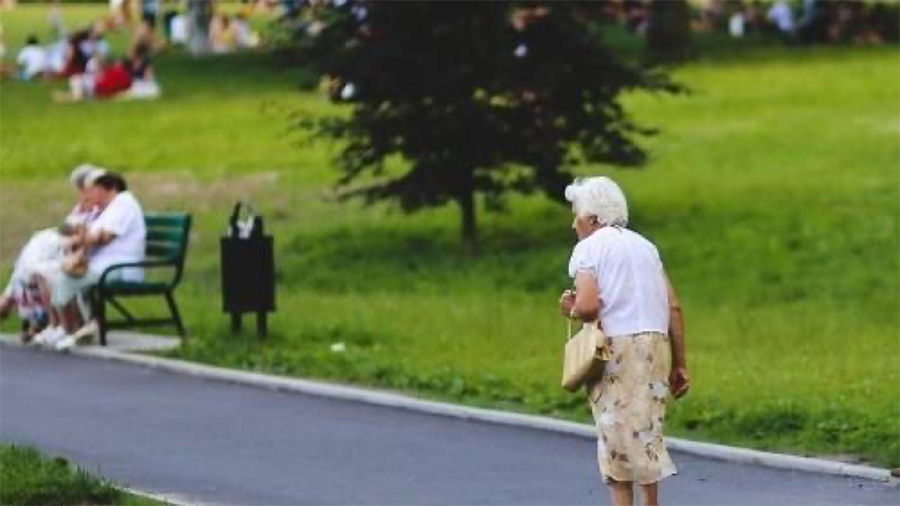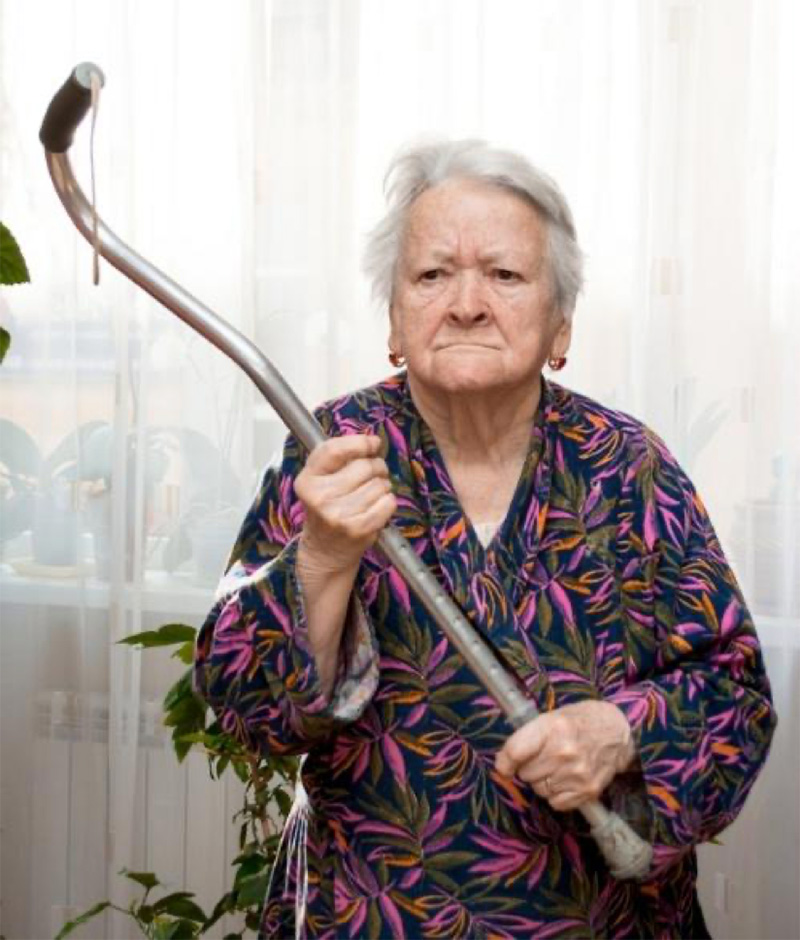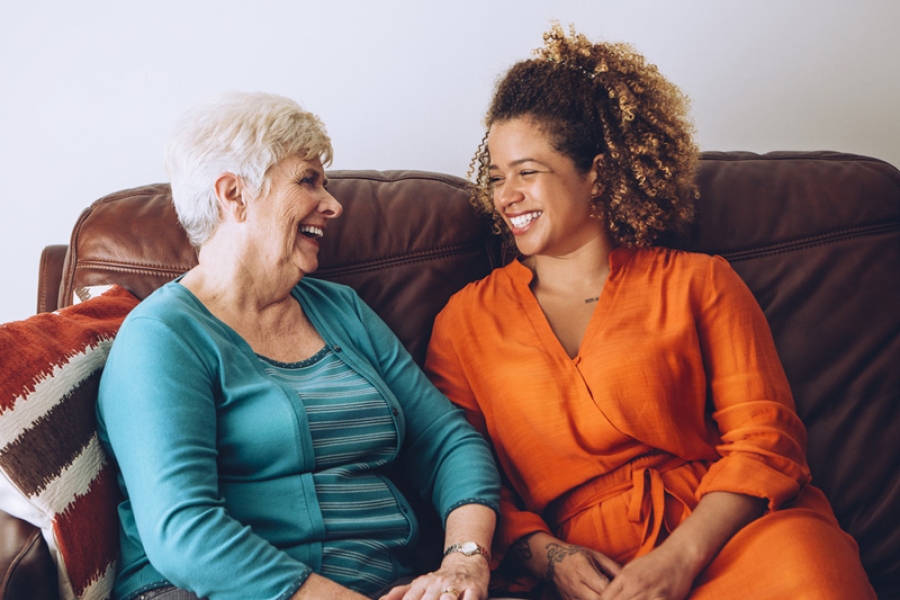Dementia Consulting, Coaching & Counseling for Individuals and Families
ALZ You Need to Know
Thursday, 08 January 2026 17:09
Antipsychotic Medications in Dementia: Understanding the Benefits, Risks, and Critical Questions for Your Care Team
Written by Debby Potticary MSN, NP-CBehavioral and psychological symptoms of dementia (BPSD) affect nearly all people living with dementia at some point during their illness. These are really just symptoms - much like forgetfulness and repetitive questions are symptoms, but they are usually reactions to things in the environment or sensations in the individual’s body or mind.
Behavioral symptoms can include: being noncooperative in care and agitation about it, changes in sleep pattern, verbal and physical aggression, wandering, pacing, yelling and restlessness. Other symptoms can be psychological including: anxiety, depression, apathy (lack of motivation), delusions, paranoia, hallucinations, fear, suspicion and psychosis. These symptoms can cause significant distress for both patients and their caregivers. When non-pharmacological interventions aren't sufficient, physicians may consider medications. This decision, however, requires careful consideration of both benefits and substantial risks.
Understanding BPSD and Treatment Approaches
Behavioral and psychological symptoms vary over time and by dementia type. These symptoms are typically associated with increased hospitalizations, earlier placement in long-term care facilities, and significant caregiver burden and burn out. First let’s break down what these symptoms may look like to you.
- Believing the caregiver is an imposter or not recognizing them at all (and being upset by these beliefs) are delusions.
- Reacting to redirection or necessary/safe activities with swearing, yelling, physical resistance is agitation.
- Refusing to change clothes/undergarments or get clean because they believe they (falsely) can do it themselves or they’ve already done it are delusions.
- Yelling at/threatening caregivers, neighbors, other residents or children, or seemingly unprovoked catastrophic reactions are examples of aggression.
- Emotional distress due to fears, where the person cannot be consoled, is anxiety.
- Significant distress from unfounded paranoia about thefts, potential theft, intruders, poisoned food or other fears is a symptom of psychosis.
- Seeing things that aren’t there (such as animals/pets or people/children) are hallucinations (visual) – a common symptom in Lewy Body dementia.
- Persistent sad mood because of awareness of lost skills/abilities, or disengagement from social activities that they used to enjoy – plus changes in appetite, sleep patterns and thoughts of ending it all are symptoms of depression.
These are just some of the symptoms our clients have experienced over the years. We are especially alert to behaviors that result in harm or risk of harm to themselves or others (including caregivers). These symptoms are not just moods or mental health problems. These are symptoms that the person is in distress and needing help. Behaviors are a form of communication. We need to listen and act.
The cause may or may not be their progressing cognitive disorder. For example, some people were always anxious but now may not have access to their typical coping strategies (reading, visiting with friends, going shopping, going for long quiet walks). Some people have struggled with major depression for years but can no longer benefit from counseling.
There are several behavioral symptoms that do NOT warrant use of medication: 
- General confusion without distress or just being “pleasantly confused.”
- Wandering.
- Going into others’ rooms and accepting redirection.
- Forgetting to use their assistive devices.
- Trying to stand without assistance multiple times a day.
- Getting up in the middle of the night multiple times to use the restroom.
- Getting their days and nights confused, sleeping during the day and rummaging all night.
Depression, anxiety, apathy and sleep problems are common symptoms in dementia.
Analysis in 2021 showed a prevalence of depression in 40 % of adults with dementia. Unfortunately the Geriatric Depression Scale has decreased reliability in patients with dementia. The Cornell Scale for Depression in Dementia is a better assessment but takes longer. Lack of efficient assessments lead to under detection and undertreatment.
Experienced professionals can help determine what these symptoms may be communicating and help family caregivers understand how to respond. We start by examining the symptom as a possible reaction to external triggers or what unmet need the person is communicating. If triggers are internal (such as delusions or memories of past traumas) and cannot be anticipated, we need to look towards more creative environmental changes (to keep people safe) or medicine.
No drugs are approved by the Food and Drug Administration (FDA) specifically for treating all behavioral and psychological symptoms of dementia but at times medications are used to address concerning symptoms (Nuplazid® is specifically FDA approved for Parkinson’s psychosis; Rexulti®/ brexiprazole is FDA approved for agitation in Alzheimer’s).
Current clinical guidelines emphasize that environmental approaches or “non-pharmacological” management should be the first-line approach for behavioral/psychiatric symptoms of dementia. These interventions include:
- caregiver education about how to minimize behaviors,
- supportive coaching,
- music therapy,
- massage,
- more cognitive stimulation,
- environmental modifications, and
- individualized activities tailored to the person's interests and abilities.
Only when these approaches prove insufficient, or when there is severe distress or risk of harm, are medications considered.
Early in my career a colleague/mentor described it to me as a “judicious use of medications.” When non-pharmacological interventions don’t fully help or just fail, then we look to medications – the right pill, at the right dose, with the right timing, aiming for the right outcome is a judicious use of meds.
Choosing the Right Intervention is Difficult
Symptoms can overlap and determining the proper target is often more an art than a science, but clinical guidelines help.
For example, anxiety often walks hand-in-hand with depression. An anti-depressant may “take the edge off” of the person living with dementia. The challenge in choosing this approach is the severity of the symptoms. The timing is bothersome to the patient because the symptoms will persist until the medication is at a therapeutic level. Anti-depressants typically take 4-6 weeks for full effect, and many good clinicians start with the lowest dose and “titrate” up to a therapeutic level. It is also important to assess if treating anxiety/depression may help other symptoms such as changes in sleep (such as a person who is in bed all day). Typically the safest medication for anxiety and depression in dementia is to start with sertraline (Zoloft®) or escitalopram (Lexapro®).
Apathy (a persistent loss of motivation or lack of interest in things) is a symptom of dementia at any stage and often a persistent symptom that does not come and go. A clinician should identify if a patient has apathy or depression before starting antidepressants. Typically medications do not help apathy. An individualized plan of care to try to engage a patient in activities they prefer can be helpful. Occasionally a trial of a low-dose stimulant may improve a person’s quality of life.
Sleep disturbances occur in 35% of patients with dementia. Age and dementia can change a person's circadian rhythm. Non-pharmacological attempts should be considered before medicine. Consider sleep hygiene strategies, possibly try a light box. If medication is needed, a caregiver should discuss what they’ve tried with their provider. Trazodone, a common antidepressant given at lower doses than for treating depression, is often given to stabilize moods and improve sleep without oversedation.
The Potential Benefits of Antipsychotics: What the Evidence Shows
Antipsychotic medications do offer modest benefits for certain symptoms in dementia. They should only be used to manage psychosis, aggressive behaviors or distressing hallucination/delusion. Understanding what they can—and cannot—do is essential for informed decision-making.
In this next section, we will use generic names. Just for your reference here is the key to brand names:
Aripiprazole = Abilify
Brexpiprazole = Rexulti
Quetiapine = Seroquel
Risperidone = Risperdal
Olanzapine = Zyprexa
Haloperidol = Haldol
Trazodone = Desryl
Demonstrated Efficacy
Research shows that antipsychotics demonstrate modest efficacy in treating psychosis, aggression, and agitation in people with dementia. However, the keyword here is "modest." The improvements, while real, are typically small in magnitude.
Recent evidence indicates:
- Agitation and Aggression: Aripiprazole, brexpiprazole, and risperidone show effectiveness for severe agitation in Alzheimer's dementia with brexpiprazole reducing agitation better compared to placebo after 12 weeks of treatment.
- Psychotic Symptoms: Aripiprazole and risperidone are more effective than placebo in managing psychotic symptoms in older adults with dementia.
- Individual Response: Some patients do experience meaningful improvement in their symptoms, allowing for better quality of life and reduced caregiver stress.
Commonly Prescribed Medications
Second-generation antipsychotics such as risperidone, olanzapine, quetiapine, and aripiprazole are prescribed more frequently than first-generation antipsychotics like haloperidol. First generation medications have significant negative side-effects including involuntary movement disorders, significant oversedation, drops in blood pressure and increased falls.
The Significant Risks: What Every Caregiver Must Know
While medications can provide relief for some symptoms, they carry substantial risks. Many of the above mentioned medications have FDA black box warnings and international regulatory alerts.
Increased Mortality Risk
The most serious concern is increased mortality. The FDA has issued a black box warning about increased death risk among elderly patients with dementia receiving antipsychotics for BPSD, with mortality rates of 3.5% versus 2.3% in those not taking these medications, primarily due to cerebrovascular disease.
That means that there is only a 1.2% difference in the risk of death using antipsychotics.
Cerebrovascular Events and Stroke
Recent large-scale studies show antipsychotic use is associated with increased risks for stroke. These risks are particularly elevated in the first three months after starting treatment.
Additional Serious Adverse Events
Antipsychotics may increase risks for pneumonia, cerebrovascular events, parkinsonian symptoms, and venous thromboembolism. A comprehensive 2024 study found:
- During the first three months of treatment, pneumonia rates were 4.48% among antipsychotic users versus 1.49% for non-users
- Increased risk of hip fractures
- Increased risk of venous thromboembolism
- Increased risk of long-term care placement and institutionalization
Read these statistics critically – these are correlations, not necessarily causal adverse events. For example, just using medications didn’t cause long-term placement or institutionalization. Placement likely would have happened if the medications were not used also.
Common Side Effects
Beyond life-threatening risks, antipsychotic medications frequently cause:
- Excessive sedation and drowsiness
- Extrapyramidal symptoms (tremors, stiffness, difficulty with movement)
- Confusion and cognitive worsening
- Urinary tract infections
- Falls
- Metabolic changes
In a person with dementia, these symptoms may CAUSE problematic behaviors. So, if the medications do not seem to be working, it could be because of side effects.
The Reality Check: Limited Effectiveness
Perhaps most concerning is the gap between the risks and the actual benefits. A study examining real-world outcomes found that antipsychotic treatment improved behavioral and psychological symptoms for fewer than one-third of patients while increasing the risk of adverse events for more than half.
Care teams must have realistic goals. These meds will not bring the person back to their baseline personality. They will not make them happy and engaging if they have preferred solitude their whole lives. They may not resolve anxiety or resistance completely but may make it easier to give a shower or change their clothing. They may still go into others’ rooms but will accept redirection from a caregiver.
Palliative Care and End of Life
In the end stages of Alzheimer’s and related dementias, medications are sometimes given to relieve distress. Anti-anxiety medication such as lorazepam (Ativan) and alprazolam (Xanax) are sometimes suggested when a person enters a stage where they are no longer ambulatory and have 24/7 care.
Critical Conversations for Caregivers and Providers
If you or your loved one's physician is considering or has prescribed any medication or antipsychotic medication, here are essential questions to guide the conversation:
Before Starting Treatment
1. What might these symptoms be communicating?
- Is the person waking up at night because of urinary frequency or incontinence?
- Is pain the reason why the person has vocally disruptive behaviors?
- Are they pacing because of constipation?
- Is there an infection causing worsening confusion and delusions?
2. Have all non-pharmacological interventions been thoroughly attempted?
- What specific non-drug approaches have been tried?
- Has the care environment been optimized?
- Have caregiver support and education been provided?
3. What specific symptoms are we targeting with this medication?
- Is the symptom severe agitation, psychosis, or aggression?
- How distressing is this symptom to my loved one?
- Is there immediate risk of harm to the person living with dementia or others?
4. What are the expected benefits for my loved one specifically?
- What improvement can we realistically expect?
- How long before we might see benefits?
- What does "success" look like?
5. What are the specific risks for my loved one?
- Given their age, medical conditions, and medications, what are their individual risk factors?
- What is their stroke risk?
- Do they have any conditions that increase risk (such as Lewy body dementia or Parkinson's disease)?
6. What alternative medications or approaches should we consider first?
- Have we considered treating pain empirically?
- Would an antidepressant be appropriate?
- Are there other medical or psychiatric conditions that need treatment?
- Are there natural or homeopathic approaches we could try?
During Treatment
7. What is the treatment plan and monitoring schedule?
-
- What is the starting dose and target dose?
- How will we monitor for effectiveness?
- What specific side effects should we watch for and how should we report them?
- How often will we reassess the need for this medication - does it need another office visit or telehealth or just phone call?
8. What physical health monitoring will be done?
-
- Will there be regular checks of blood pressure, blood sugar, and movement symptoms?
- How frequently should we check vital signs?
- What warning signs require immediate medical attention?
9. How long will my loved one stay on this medication?
-
- For patients who remain relatively asymptomatic for 3-6 months on an antipsychotic, a discontinuation trial should be seriously considered.
- What is our plan for reassessing the ongoing need?
- What is the plan for gradual tapering when appropriate?
- Are there any risks of stopping the medication abruptly?
- Are there any risks of stopping it slowly?
- If we discontinue the medication and symptoms return, what is the process for resuming medication?
For Specific Dementia Types
10. Is this medication appropriate for the type of dementia my loved one has?
-
- For people with Lewy body dementia or Parkinson's disease dementia, which medications are best to limit potential motor function deterioration?
- How will this medication impact their thinking/mentation or language?
Informed Consent
11. Can we review the risks and benefits together in detail?
-
- Request a frank discussion of mortality and stroke risks.
- Understand that this is an off-label use for most symptoms.
- Discuss what success looks like versus what "no benefit" looks like.
- Consider documenting the discussion and shared decision-making process.
The Importance of Regular Reassessment
One of the most critical aspects of antipsychotic use in dementia is time-limited use to minimize the impact of side effects. Recent data shows that while antipsychotic use decreased by 25.8% overall from 2015 to 2020 among older adults with dementia, use remained steady among community-dwelling individuals. This suggests that in home settings, medications may continue longer than medically necessary.
Existing studies generally observe treatment effects within a 3-month period, and evidence for longer-term use remains limited. Regular reassessment should include:
- Evaluation of whether symptoms have improved;
- Assessment of side effects and adverse events;
- Consideration of whether non-pharmacological interventions could now be effective;
- Planning for gradual dose reduction and discontinuation trials when appropriate.
Making Informed Decisions Together
The decision to use antipsychotic medications in dementia is never simple. These medications occupy a challenging space: they can provide meaningful relief for some severe symptoms, but they carry substantial risks, and their benefits are often modest at best.
ALZ You Need to Know. The most important takeaway is that this decision requires:
- Exhaustive attempts at non-pharmacological interventions first
- Clear identification of target symptoms that are severe and distressing
- Honest discussion of realistic benefits versus significant risks
- Individualized assessment of your loved one's specific situation
- Careful monitoring during treatment
- Regular reassessment with plans for discontinuation when possible
As a caregiver, you are an essential partner in this decision-making process. Do not hesitate to ask questions, seek second opinions, and advocate for your loved one. The goal is always to optimize their quality of life while minimizing harm—a balance that requires ongoing communication with the healthcare team and careful attention to both benefits and risks.
Remember, we are here to support you. You can set up a coaching call with our team by emailing This email address is being protected from spambots. You need JavaScript enabled to view it..
References
- Brath, H., Wiesenfeld, L., & Stall, N. M. (2025). Nonpharmacologic management of the behavioural and psychological symptoms of dementia. CMAJ, 197(11), E298-E299. https://doi.org/10.1503/cmaj.241076
- Cloak, N., & Al Khalili, Y. (2020). Behavioral and psychological symptoms in dementia. StatPearls. https://www.ncbi.nlm.nih.gov/books/NBK551552/
- Guideline recommendations on behavioral and psychological symptoms of dementia: A systematic review. (2024). Journal of the American Medical Directors Association. https://doi.org/10.1016/j.jamda.2024.00223-8
- Hou, V. (2025). Antipsychotic use in older adults with dementia and behavioural and psychological symptoms. CGS Journal of CME, 14(2).
- Howard, R., Cort, E., Bradley, R., Harper, E., Kelly, L., Bentham, P., ... & Noble, J. (2024). Antipsychotics for dementia linked to more harms than previously acknowledged. BMJ. https://doi.org/10.1136/bmj-2023-075534
- Kales, H. C., & Maust, D. T. (2020). Managing behavioral and psychological symptoms of dementia. Frontiers in Pharmacology, 11, 1168. https://doi.org/10.3389/fphar.2020.01168
- Kim, Y., Krause, T. M., Samper-Ternent, R., & Teixeira, A. L. (2025). Antipsychotic use in older adults with dementia: Community and nursing facility trends in Texas, 2015-2020. Journal of the American Medical Directors Association, 26(3), 105463. https://doi.org/10.1016/j.jamda.2024.105463
- Noble, J. (2022). Navigating life with dementia. Oxford University Press.
- Seitz, D. P., et al. (2013). Atypical antipsychotic use in patients with dementia: Managing safety concerns. Canadian Journal of Psychiatry, 57(2), 1-10.
- Snow, T. (2021). Understanding the changing brain: A positive approach to care. Positive Approach LLC.
- Sultana, J., Spina, E., & Trifirò, G. (2022). Implications of adverse outcomes associated with antipsychotics in older patients with dementia: A 2011-2022 update. Drugs & Aging, 39(12), 949-967. https://doi.org/10.1007/s40266-022-00992-5
- Tampi, R. R., Tampi, D. J., Balachandran, S., & Srinivasan, S. (2016). Antipsychotic use in dementia: A systematic review of benefits and risks from meta-analyses. Therapeutic Advances in Chronic Disease, 7(5), 229-245. https://doi.org/10.1177/2040622316658463
- Trinkley, K. E., Sturm, A. M., Porter, K., & Nahata, M. C. (2020). Efficacy and safety of atypical antipsychotics for behavioral and psychological symptoms of dementia among community dwelling adults. Journal of Pharmaceutical Health Services Research, 33(1), 7-14. https://doi.org/10.1177/0897190018771272
Published in
Medications
Tagged under
Monday, 15 January 2024 04:56
Take Two Joylenol and Call Me in the Morning
Written by Pamela Atwood LPC, MA, CDPI recently gave a presentation to professional caregivers with my CaringKind colleagues Stephani Shivers and Olivia Cohen. Stephani shared a study about the lasting power of emotions, specifically laughter/happiness and sadness. After watching the “fake pleasure” scene from When Harry Met Sally, some people in the study had sustained happiness for 2, 4 or 8 hours or longer. After watching the sad part of Forest Gump, the sadness was sustained similarly. Olivia then described vicarious trauma (something caregivers are always at risk for) and that we can also get vicarious joy.
So, here’s the lesson I wanted to share with you. Plan and administer doses of joy just like medications. Know your loved one’s or client’s prescriptions.
The Joylenol. What is your loved one’s source of joy? Maybe it is watching a favorite TV show, or talking about their grandchildren, dancing, petting a cat or enjoying a hearty bowl of soup. Knowing what brings them true and reliable joy is essential to this prescription.
The Dosage. How much joy do they need to have sustained positive emotions? Maybe it’s 10 minutes or maybe it’s longer. Having the right dose of Joylenol is just as important as the right dosage of any prescription.
The Timing. When to give a prescription is a key part of proper treatment. For example, if I were to take a pain reliever for my knee pain, I wouldn’t want to wait until I can’t walk on my knees. Then it’s going to take more pain reliever, or the milder prescription may not even work. Same thing for Joylenol. If a person loves music, enjoy some BEFORE a shower so that the positive emotions remain through the otherwise unpleasant activity. If you want someone to sleep well, avoid the news before bed and instead watch a favorite sitcom on demand.
The Frequency. Some need joy on occasion. When living with dementia, people may need their Joylenol on a more regular or routine basis. I recommend at least once a day. But if your person has a lot of negative reactions or frustrations or complex medical needs, they may need their Joylenol more frequently. Know what works for them and then try to increase the frequency through the day to get the desired effect. And feel free to use as needed.
Take Two. Customizing this intervention is the cornerstone of person-centered care. My Joylenol would include music/singing, funny animal videos, sweet sounds of babies laughing, doing something creative like crochet or Zentangles® and buttered popcorn or some yummy take-out. I am not going to enjoy popcorn before my morning shower, but the animal or baby videos might just put me in a positive mood, then add music/singing to my shower time and I’m set up for a great day.
Vicarious Joy. As Olivia pointed out, caregivers can feel joy just by knowing they made the person living with dementia happy. I’ll add to this prescription that Joylenol is most effective when shared. And if you as a caregiver are feeling stressed, I am hereby writing a prescription of Joylenol for you!
If you are struggling to find Joylenol in your life, please reach out to Atwood Dementia Group at 860.798.0369 or This email address is being protected from spambots. You need JavaScript enabled to view it.. Our coaches can walk you through strategies to improve your caregiving experiences.
Published in
Health & Wellness
Tagged under
Friday, 05 January 2024 13:20
Discover the Heartwarming Harmony of Auntie P, Music & Me
Written by Pamela Atwood LPC, MA, CDPAward-winning author Pamela Krist Atwood invites readers to witness a heartwarming journey in her captivating series, "Auntie P, Music & Me." This extraordinary collection of stories delves into the touching and magical bond shared between a special young person and her beloved aunt navigating life with dementia.
In the first book, "All About Animals," Auntie P unveils her world through the lens of music, captivating young hearts and engaging readers of all ages. Through a delightful exploration of musical groups, whose names resemble animals – from monkeys to eagles to beetles – Auntie P and her family embark on a heartwarming journey. Amidst emotional ups and downs, they discover a profound way to connect: by simply asking Auntie P to "tell me about it." This simple yet profound approach forms a bridge, enabling them to communicate in a meaningful, loving, and deeply enriching manner.
Atwood, a seasoned gerontologist, psychotherapist, and dementia specialist with over three decades of experience in aging services, infuses her expertise and passion into these narratives. With a keen understanding of the intricacies of dementia care, she masterfully crafts tales that resonate on multiple levels, touching the hearts of readers while offering invaluable insights into the world of dementia.
" 'Auntie P, Music & Me' is not just a series of stories; it's a celebration of connection, resilience, and the enduring power of love," Atwood shared. "Through these tales, readers will witness the beauty of forging connections despite confusion and emotional challenges. My hope is that these stories will inspire empathy, understanding, and meaningful connections among readers of all ages."
Beyond her literary pursuits, Atwood is a multifaceted personality who finds joy in various forms of artistic expression. As a certified laughter therapist, she spreads joy and positivity through her infectious laughter. Her passion for music extends beyond the pages of her books, as she enjoys singing and exploring the rich tapestry of American music from the 1950s to the 1980s.
Together with her husband Tom, who is a co-author of one of her books, Atwood cherishes a fulfilling life blessed with two remarkable children, Charlotte and Tom Jr. However, her ultimate dream transcends personal achievements – she fervently hopes for a world where Alzheimer's and other forms of dementia find a cure, envisioning a future where her expertise is no longer needed.
Join Pamela Krist Atwood on an inspiring journey of love, resilience, and the power of music. "Auntie P, Music & Me" promises not only delightful storytelling but also serves as a poignant reminder of the beauty found in human connections, regardless of life's challenges. Available now for readers to purchase on Amazon in kindle and paperback formats!
About Pamela Krist Atwood
Pamela Krist Atwood is an accomplished gerontologist, psychotherapist, dementia specialist, and award-winning author. With a wealth of experience in aging services and dementia care since 1990, Atwood is the founder of Atwood Dementia Group, based in Hebron, Connecticut. Her passion for storytelling, music, and laughter therapy blends seamlessly into her work, creating a unique and impactful narrative that touches the hearts of readers worldwide.
About Auntie P, Music & Me
"Auntie P, Music & Me" is a heartwarming series of stories that explores the magical connection between a young person and her aunt living with dementia. Through the lens of music and heartfelt interactions, these stories offer valuable insights into navigating relationships amidst the challenges of dementia, fostering empathy, understanding, and meaningful connections among readers of all ages.
Published in
News
When I suggest “brain games” many people cringe and say, “Well, I do the (insert your favorite word game here) every day.” Wouldn’t it be great if there were things we enjoyed doing or consuming that could help our brain health? Seems there are….Red wine, dark chocolate and classical music just for starters.
Red Wine
Resveratrol is an antioxidant found in red grape skins and seeds. It specifically helps brain health: to manage blood pressure and cholesterol reducing vascular dementia; after stroke; and in possible reduced incidence of dementia. Studies show resveratrol itself (which is found in red wine, cranberries, blueberries) has antioxidant, anti-inflammatory and lipid-regulating effects. How much wine depends on which study you read. Some suggest one 4-ounce glass daily; another suggests one 5-ounce glass for women and two 5-ounce glasses for men daily.
Please remember that while there are some health benefits to drinking wine, there are also risks from excessive drinking. You should also check with your doctor to see if alcohol is contraindicated with your medications/health conditions.
Dark Chocolate
Over 90% of Americans planned to give chocolate during the holidays. Stats are impressive when it comes to chocolate. Globally, 16 billion pounds of chocolate are consumed annually, with the Swiss being the highest consuming country (25.5 pounds per person annually). Only 34% of Americans prefer dark chocolate, but that may change when people realize the benefits for brain health.
For many years, scientists have studied the flavanols in dark chocolate (although these antioxidants also are found in various fruits and vegetables). Many studies have touted the antioxidant benefits for all sorts of health issues, including brain health. Scientists have compared various levels of cacao in dark, milk and white chocolate. Dark has the most flavanols. But check your labels – 60% dark chocolate is the minimum you should target if you are eating it for the brain health benefits.
And then again, this may not be a regular treat. A more recent study reported by Consumer Reports (but not peer-reviewed) indicates that lead and cadmium levels are high in dark chocolate, with more negative outcomes than potential benefits. They suggest that 60-70%, and specific brands, have lowest heavy metals. Read more of the study here. It seems we should avoid more than 1 ounce per day, but if you’re concerned, definitely speak with your MD.
Bach
Bach, Beethoven, Handel, Mozart and Chopin are some of my favorite composers. And they are safe – no heavy metals (I know… ugh). Study after study has found improvements in all kinds of cognitive areas when Baroque music has been enjoyed. These include concentration, language, memory retention and retrieval. In fact, several studies found classical music improves neuroplasticity and neuron regeneration after damage. Furthermore, it also helps reduce stress, improve mood, relaxation and motivation. This one is easy to add to our brain health diets, without italicized fine print! Don’t worry about “in moderation” for this one. Enjoy fearlessly.
For years I have endorsed a combination of brain health strategies. A healthy, balanced diet, at least 80% of the time is the current recommendation from scientists studying the MIND Diet. Exercising 150 minutes a week, including aerobic and strengthening work, is also important. As a rule of thumb, what’s good for your heart is good for your head. Also be aware of environmental risks including smoking, pesticides and excessive noise which threatens hearing. And protect your head by wearing seatbelts, helmets and getting concussions assessed quickly. Adding healthy treats and great music enhances our quality of life as well as adds to our brain health regimen.
Resources
For more information, my favorite resources on this topic are the National Institutes of Health, National Institutes on Aging, National Institutes of Neurological Disorders and Stroke, the Alzheimer’s Association, and the Alzheimer’s Society in the UK. Please, for good health, be sure to check with your physician(s) before adding new foods/supplements or drinks to your diet.
Published in
Helpful Tips
Tagged under
Saturday, 11 November 2023 13:20
7 Things to Stop Saying to a Person Living with Dementia
Written by Pamela Atwood LPC, MA, CDPDementia can make it hard for people to communicate, and this can be upsetting and frustrating for them and those around them. However, there are many ways to help you support and communicate with each other. In the field of dementia care, we train staff members essential communication strategies for working with clients/residents. Family care partners can reduce negative reactions and improve quality of life by avoiding these 7 common communication gaffs.
- "Remember when...?"
While it can be tempting to try and jog the memory of somebody living with dementia, this kind of question is often a reminder of memories lost. This can be a frustrating or painful experience, and there’s also no evidence that training the brain in this way will help somebody hold on to memories. That’s not to say you should avoid talking about the past, but it’s better to lead the conversation and allow the person to join in.
Try this instead:
Instead of posing a question, try leading with ‘I remember when…’ instead. That way the person can search their memory calmly without feeling embarrassed, then join in if they like.
- "I've just told you that"
Having to answer the same question several times can be frustrating, but repetition happens because the individual with dementia struggles to register new information and recall short term memories. There is little benefit to passing on your frustration to somebody with dementia, and saying ‘I’ve just told you that’ only reminds the person of their condition.
Try this instead:
Try to be polite and as patient as possible. It's important for somebody with dementia to feel they're being listened to and understood. Once asked (again) distract and redirect them to something they can focus on other than their question.
- "Your brother died 10 years ago"
It’s very common for a person living with dementia to forget about a past bereavement or ask for somebody who has passed away. Reminding them of a loved one's death can be painful, even causing them to re-live the grief they've already experienced. Care partners’ responses may vary for different circumstances, but it's always good to show sensitivity and to address the underlying emotion. A person asking for a parent (for example) may feel unsure or unsafe.
Try this instead:
It may be better to come up with another reason for somebody's absence, while at other times a gentle reminder is appropriate. In the later stages of dementia, trying to remind them that the person has died is unlikely to work and is best avoided. I usually turn the question around to the person asking; “I’m not sure exactly, where do you think they may be?” and then ask them for help to engage in something you’re doing to help them feel safe and needed; “Well, until they get here, why don’t we polish some silverware.”
- "What did you do this morning?"
Avoid asking too many open-ended questions as it could be stressful for a person with dementia and risk making them feel “crazy” or “stupid” if they can’t remember the answer. It’s better to focus on what’s happening in the present. Many of my clients say they are assessing if it’s a good day or bad day, which is fine. For general communication though, avoid these questions and give options based on their preferences.
Try this instead:
Identify what they did and ask their opinion, such as, “I saw you reading the newspaper. I think the forecast is for rain tonight. Do you think they’re right?” You can also skip “what did you do,” and just tap into their “chit chat” skill, which remains intact until late stage. Rather than ‘what would you like to drink?’ you could ask ‘do you want tea or coffee?’ or more simply, ‘do you want a cup of tea?’
- "Do you recognize me?"
It can be distressing when somebody with dementia doesn’t recognize you, but remember that the feeling is mutual. Asking the person if they know who you are can make them feel guilty if they don't remember, or offended if they do.
Try this instead:
The way you greet somebody with dementia might change depending on the stage of their condition – judge for yourself and keep it friendly. A warm hello would suffice, or it may help to say your name and relationship, keeping it light. “Hi grandma, it’s your favorite granddaughter, Pam.”
- "Let’s have a cup of tea now, then after that we can go for a nice walk and get lunch in that café you like in town."
Long, complex sentences can be difficult to grasp for somebody with dementia. It's difficult to process several ideas at once as cognitive abilities slow down, so it's better to give directions or instructions one step at a time.
Try this instead:
Use short, simple sentences as much as possible. Avoid speaking in loud environments and wait until you have the person’s full attention before you start a conversation.
- "Do you need some help with that, sweetie/honey/dear?"
Words like ‘sweetie’, ‘honey’ and ‘dear’ can be patronizing for people living with dementia. This is sometimes referred to as ‘elderspeak’ and can cause older people to feel infantilized. Also, research shows that elderspeak hastens the course of dementia – it makes them worse faster.
Try this instead:
Always remember the person behind dementia. Using their preferred name is best. This helps focus and aids concentration too.
For individualized coaching on communication techniques and avoiding behavioral triggers, please contact Atwood Dementia Group at 860.798.0369.
Published in
Helpful Tips
Tagged under
Tuesday, 26 September 2023 14:07
The Information & Assistance Continuum
Written by Pamela Atwood LPC, MA, CDPOften, I hear from clients that they wish they knew me sooner in their journey with dementia. My answer is that they found me exactly when they were ready for me. The truth is that coaching is not the “end all, be all” and I want to share with you how I see the continuum of resources for individuals and families.
Informational helplines, websites and referral services are the first stop for many families. Most national organizations like the Alzheimer’s Association and the American Parkinson’s Disease Association have helplines that are staffed by trained volunteers and/or professionals. They provide good basic information to help give you solid information and referrals to local supports. Some information is also available through web-based resources, such as blogs, medical websites and companies that try to capture your web-info for future referrals like “A Place for Mom,” SeniorAdvisor.com and Caring.com. They offer you “free” information and referrals and make their money from the community when you move into a community/facility. They are very aggressive but do provide some good resources (warning: if you put your info into their website, you cannot access websites of service providers without going through their site again – tricky way they ensure they don’t lose you as a lead). Good local supports are also available through the United Way’s InfoLine at 211, Area Agencies on Aging programs, and Hartford Health Care’s Center for Healthy Aging. The latter can also provide a free in-home evaluation to make recommendations for services your family member may need.
Coaching is a different level of support. Some specific times you may benefit from coaching and consultation includes major transitions, when you’re trying to coordinate multiple family members or have complex family dynamics, when you have differences of opinion on the best decision for your loved one(s) goals, and when you have barriers that can be overcome with case-specific information needs. For instance, a husband who keeps trying to get his wife to take a shower may benefit from a brochure on communication (Helpline), or an assessment of the bathroom for safety or referral to a home care agency (local supports), and he may really benefit from specific examples of how to tailor his approach by using a coach. A coach works with families to identify where the person with dementia is functioning by “staging” their disease, and then offers stage-specific interventions and support to help the family meet their goals.
Coaching is different from counseling. Coaches have the answers you need and know where your knowledge deficits may result in problems. Counselors are helpful if you are having emotional barriers and need treatment for common challenges which result from the stresses of caregiving and family/life changes. I think of it like this: a counselor asks, “And how does that make you feel?” If that makes you feel like throttling the counselor, you may need a coach instead. If a coach suggests a change and it makes you have an anxiety attack, your needs may best be met by a counselor. Obviously the two work well together for caregivers too.
Care management is the next level of support. People sometimes think of care managers as expert referral sources in a “rent a daughter” model of care. A care manager helps families coordinate all aspects of support, coordinating the appointments, sometimes responding to meet the person in the emergency room, and corralling family members to help meet their clients’ goals. Case managers are angels on earth. It’s a hard and taxing job, and well used by families with complex care needs or for long-distance caregiving. Sometimes using a coach is a good transition until families are open to the thought of a care manager. Stressed caregivers often feel like they NEED to do it on their own, or should be able to, but the disease often takes two victims - caregiver and person diagnosed with dementia - and care managers can substantially reduce that risk.
I know this is long, and my goal is to help you make informed decisions, always. If you have any questions or want to refer a friend but aren’t sure which level they should be using, you can email or call This email address is being protected from spambots. You need JavaScript enabled to view it..
Published in
Information
Tagged under








